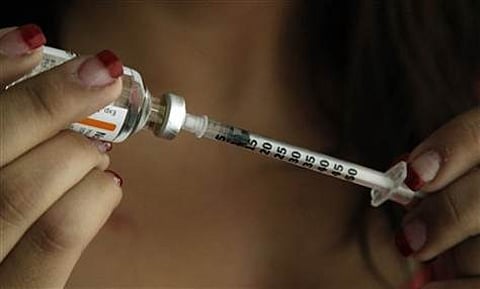Ayush Ministry told to act against firm selling medicine named ‘insulin’
NEW DELHI: India’s drug regulator has directed the Ayush Ministry to take action against a company selling a homoeopathic medicine named ‘insulin,’ according to an RTI reply.
In a letter to the advisor, drug policy section, Ministry of Ayush, the Drugs Controller General, Dr Rajeev Singh Raghvanshin said, “Subject matter is related to Ayush medicine system, you are requested to examine the matter and take necessary action by the provisions laid down under Drugs and Cosmetics Act, 1940 and Rules thereunder.”
The DCGI, which is also copied to the Drugs Controller, Rajasthan, said that “it is pertinent to mention that as per Rule 106 A (C) of the Drugs Rules 1945: No Homeopathic medicine containing a single ingredient shall bear a proprietary name of its label.”
According to Kerala-based RTI activist Dr K V Babu, the homoeopathic tablet named ‘insulin’ has nothing to do with actual insulin that controls diabetes. “Patients may get confused with a homoeopathic tablet named insulin and could stop the real insulin injected through the skin into the fatty tissue. They might get confused and switch to tablets since it may seem more convenient. This will have serious consequences,” he said. He said that the DCGI should address the issue of drugs under the same name being marketed under various systems of medicine.
According to Dr V Mohan, Chairman of Madras Diabetes Research Foundation (MDRF), it is dangerous to call any medicine insulin, whether it belongs to modern systems of medicine or any other system, as insulin is a hormone produced by the pancreas. “There could be people who are not literate and may be fooled into thinking insulin has now come in oral form. They may stop their insulin and try this, which can even result to death,” he said.
“Insulin is only available as an injection. Oral insulins have earlier been tried in the past, but those are real insulin. Injectable insulin has so far been found effective. The drug controller of India should condemn such claims. Such medicines should be banned in order not to affect the health of people, especially children and adults with type 1 diabetes. If they stop insulin, their health and indeed their life would be in danger.”
Insulin is a medication used in the treatment and management of diabetes mellitus type-1 and sometimes diabetes mellitus type-2, both of which are significant risk factors for coronary artery disease, stroke, peripheral vascular disease, and a host of other vascular conditions. According to an Indian Council of Medical Research-INDIAB, which measured the prevalence of metabolic non-communicable diseases (NCDs) in the country, there are an estimated 101 million people in India detected with diabetes, 136 million were found to be prediabetes and 315 million people from hypertension in 2021.
The national survey, which Dr Mohan and his institute coordinated, also said that 254 million people in India had generalised obesity, and 351 million had abdominal obesity. In addition, 213 million people had hypercholesterolaemia (high cholesterol), and 185 million had high LDL or bad cholesterol.
HK flags ‘cancer-causing’ ingredient in some spices
Hong Kong’s food regulatory authority found four products of popular Indian brands MDH and Everest with carcinogenic ingredients. Singapore has recalled Everest fish curry masala imported from India, citing the presence of ethylene oxide, a cancer-causing agent which raises the risk of breast cancer and lymphoma.
The Centre for Food Safety, Hong Kong’s food and environmental regulatory body, said it collected samples of four products under its routine food surveillance programme and found the presence of pesticide ethylene oxide, which is unsuitable for human consumption. The three MDH products are –curry powder (spice blend for Madras curry), mixed masala powder, and sambhar masala. The fourth product is Everest Fish Curry Masala.

